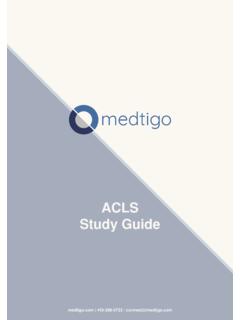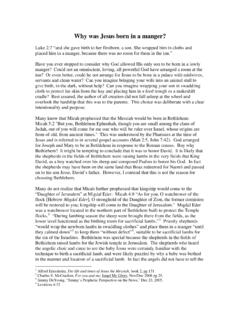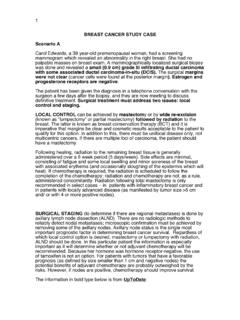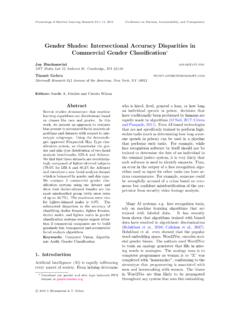Transcription of Grades Extra PracticE for Struggling Readers - Weebly
1 WORD STUDYE xtra PracticE forStruggling ReadersGrades 3 6 New York Toronto London Auckland SydneyMexico City New Delhi Hong Kong Buenos AiresLinda Ward BeechExtra PracticE .. Word study 2010 by Linda Ward Beech, Scholastic Teaching ResourcesScholastic Inc. grants teachers permission to photocopy the designated reproducible pages from this book for classroom use. No other part of this publication may be reproduced in whole or in part, or stored in a retrieval system, or transmitted in any form or by any means, electronic, mechanical, photocopying, recording, or otherwise, without written permission of the publisher. For information regarding permission, write to Scholastic Inc., 557 Broadway, New York, NY : Mela OttaianoCover design: Brian LaRossaInterior design: Melinda BelterInterior illustrations: Teresa AnderkoISBN-13: 978-0-545-12411-9 ISBN-10: 0-545-12411-5 Copyright 2010 by Linda Ward BeechAll rights reserved.
2 Published by Scholastic in the 2 3 4 5 6 7 8 9 10 40 16 15 14 13 12 11 10 Extra PracticE .. Word study 2010 by Linda Ward Beech, Scholastic Teaching ResourcesContentsIntroduction .. 4 Lesson 1: Compound words .. 6 Lesson 2: More Compound words .. 9 Lesson 3: Prefixes: un-, re-, over-, mis-, sub- .. 12 Lesson 4: Prefixes: in-, fore-, de-, dis-, under- .. 15 Lesson 5: Prefixes: super-, pre-, semi-, multi-, im- .. 18 Lesson 6: Suffixes: -er/or, -ful, -ly, -ness, -able/ible .. 21 Lesson 7: Suffixes: -ship, -ment, -less, -y, -ist .. 24 Lesson 8: Suffixes: -ant/ent, -al, -ous, -ion/tion, -hood .. 27 Lesson 9: Prefixes and Suffixes .. 30 Lesson 10: Latin Roots: ped, numer, act, port, art .. 33 Lesson 11: Latin Roots: pop, form, ject, nav, man .. 36 Lesson 12: Latin Roots: vis/vid, dict, aud, liber, mar.
3 39 Lesson 13: Greek Roots: phon, meter, geo .. 42 Lesson 14: Greek Roots: photo, auto, bio .. 45 Lesson 15: Greek Roots: graph, tele, cycle .. 48 Lesson 16: Greek and Latin Number Roots .. 51 Lesson 17: Plurals .. 54 Lesson 18: More Plurals .. 57 Lesson 19: Plurals and Possessives .. 60 Lesson 20: Word Endings .. 63 Lesson 21: Contractions .. 66 Lesson 22: Easily Confused words .. 69 Lesson 23: Syllables .. 72 Lesson 24: More Syllables .. 75 Answers .. 78 Extra PracticE .. Word study 2010 by Linda Ward Beech, Scholastic Teaching Resources4 IntroductionLearning to read is the goal for all students, but, unfortunately, success is not a given. Many students, for many reasons, find reading an enormous challenge. Despite excellent reading programs, dedicated teachers, and various kinds of interventions, all too many students emerge from the primary Grades as Struggling Readers .
4 One way in which to help these students is with additional PracticE in word the structure of words provides useful information to Readers when they are figuring out meaning and pronunciation. Elements such as prefixes, suffixes, and roots are invaluable when encountering new words . According to one study , approximately 60 percent of English words have definitions that can be predicted based on the meanings of their parts. Breaking words down into syllables, smaller words , or other word parts helps students recognize common spelling patterns. These skills also support word recognition and vocabulary development. Struggling Readers gain confidence as they apply these offering opportunities to learn or review basic word study techniques, the lessons in this book help students develop and reinforce reading fluency. You can use the lessons in the sequence given or choose those needed to address specific weaknesses in a student s OrganizationEach lesson is three pages long and addresses a particular element of word first lesson page includes: a statement of the word study element for the lesson examples of the word study element a simple activity reinforcing the element another exerciseThe second page includes: two other exercises including cloze exercises, word meaning, identification of word parts, word building, syllables, word endingsCVbZ _____ 9 ViZ _____Extra PracticE .
5 Word study 2010 by Linda Ward Beech, Scholastic Teaching Resources)'LdgY HijYn AZhhdc &( Greek Roots: phon, meter, geoMany words in English come from Greek. If you know the meaning of Greekroots, it will help you understand more words when you Root Meaning Examplephon sound phonicsmeter measure thermometergeo earth geography A study the chart above. Then use it to complete each sentence. You may use a word more than once. 1. A _____ measures temperature. 2. The study of earth s surface is called _____ . 3. In reading, you learn about _____ , the sounds that letters spell. 4. To find out how warm it is, check a _____ . 5. You learn about earth s plains, hills, and mountains in _____ . B Choose a word from the box to complete each sentence. earphones geologist metronome speedometer telephone 1. Someone who studies earth s crust is a _____ . 2.
6 A _____ measures the speed of a car. 3. He used _____ to listen to music. 4. A _____ measures or marks time for a musician. 5. You can talk to a friend on the _____ .CVbZ _____ 9 ViZ _____)( Extra PracticE .. Word study 2010 by Linda Ward Beech, Scholastic Teaching ResourcesLdgY HijYn AZhhdc &( Greek Roots: phon, meter, geoGreek Root Meaning Examplephon sound phonicsmeter measure thermometergeo earth geography C Underline the Greek root in each word below. Then write a meaning for each word. Use the chart above and a dictionary to help you. 1. geode _____ 2. odometer _____ 3. megaphone _____ 4. perimeter _____ 5. geology _____ D Underline the Greek root in each word. Then circle the best meaning for the word. 1. microphone a. instrument to make b. film for making c. a kind of germ sound louder small photos 2. pedometer a. someone who b.)
7 Instrument to measure c. a triangular part takes care of feet walking distance of a building 3. geocentric a. very large b. related to exercise c. viewed from earth s center 4. symphony a. place of worship b. music for an c. a sameness orchestra of feeling 5. barometer a. something left over b. instrument to measure c. having to do air pressure with the eye Extra PracticE .. Word study 2010 by Linda Ward Beech, Scholastic Teaching Resources5 The third page includes: a word meaning exercise a comprehension passage that reviews the lesson element and includes questions; or a word puzzleWays to Make the Most of the Lessons Use the lessons in the classroom for Extra PracticE during regular reading time or as individual assignments. Send the lessons home for students to do as homework or to complete with an adult.
8 Review, review, review. For example, when students are working on a lesson about prefixes, they will also encounter various vowel and consonant sounds. Take a minute to remind students about what they already know about those sounds. Discuss students answers to clear up misconceptions and to reinforce the lesson element. Use the lessons to draw attention to spelling changes for verb tenses or plurals and for parts of speech. Have students create word webs to illustrate the use of suffixes, Latin or Greek roots, common syllables, or other word study elements. Use the lessons to expand students vocabulary. Help students use the skills covered in the book to break down the multisyllabic words in the lessons. Create word lists from each lesson. Students can use them in word sorts, on word walls, in writing assignments, or in Readers journals. Encourage students to write complete sentences when they answer the questions for the comprehension paragraphs in Exercise F.
9 Keep observation charts to monitor _____ 9 ViZ _____Extra PracticE .. Word study 2010 by Linda Ward Beech, Scholastic Teaching Resources))LdgY HijYn AZhhdc &( Greek Roots: phon, meter, geoGreek Root Meaning Examplephon sound phonicsmeter measure thermometergeo earth geography E Some math words have the Greek root meter. Add this root to each word on the web. Then write the meaning of each word. Use the chart above and a dictionary to help you. 1. centi _____ 3. dia _____ METER 2. kilo _____ 4. milli _____ F Read the passage. Circle the words with the Greek roots from this answer the you know what a phonometer is? My big brother says he needs one. He wants to measure the sound when we do our homework. He thinks we make too much noise when we do our geometry and geography course, we think he makes too much noise when he is on his cell phone.
10 He paces the perimeter of the room and talks in a loud voice. You d think he had a megaphone! 1. What is a phonometer? _____ _____ 2. Why does the big brother want one? _____ _____ 3. How do you think this family should solve this problem? _____ _____ Extra PracticE .. Word study 2010 by Linda Ward Beech, Scholastic Teaching ResourcesExtra PracticE .. Word study 2010 by Linda Ward Beech, Scholastic Teaching Resources6 Name _____ Date _____Word study Lesson 1 Compound WordsSome words are made up of two words put together. They are called compound words . When you read, look for the words that make up a compound word. A Write the two words that make up each of the compound words in the box. Then write the compound word. anthill teapot barnyard birdcage clothespin doormat popcorn snowflake toolbox wheelchair 1. _____ + _____ = _____ 2.







